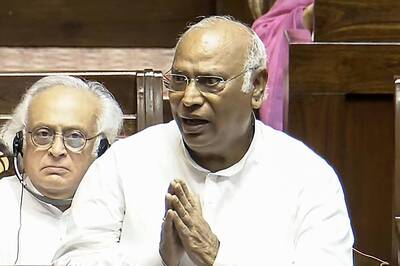
views
New Delhi: India's air pollution policies are more successful than the water pollution ones because of the country's Supreme Court's effective intervention to address matters polluting the atmosphere, according to a new study.
The study, published in the October issue of the American Economic Review, says that high levels of citizen engagement persuaded India's Supreme Court to become active in the implementation and enforcement of the air regulations.
"Such engagement did not exist in respect to the water policies. Indeed, it is much cheaper to protect oneself against polluted water with filters and bottled water," says the study conducted by US researchers.
"The air pollution regulations had the powerful Supreme Court's backing and this brought substantial bureaucratic effort to bear on the problem. "In contrast, the implementation and enforcement of the water pollution regulations appeared to lack widespread public support and was left to mix of central and state government institutions without the tools, accountability, and resources that are generally critical for effective governance," says the report--"Environmental Regulations, Air and Water Pollution and Infant Mortality in India".
In India, particulate matter concentrations - a deadly form of pollution - are five times that of the US and, according to a World Health Organisation report released in May, Delhi's particulates pollution was almost three times higher than Beijing's between 2008 and 2013.
"Effective environmental regulations in India are vital for the hundreds of millions of Indians who are seeing their life expectancy cut short due to high air pollution. And if India chooses to regulate greenhouse gases, it will be important for the world as India increasingly becomes a major emitter of greenhouse gases," says University of Chicago economist Michael Greenstone, an author of the study and the director of the Energy Policy Institute at Chicago (EPIC).
"We find that when it comes to enforcing its strong environmental regulations, India has a mixed track record," Greenstone says.



















Comments
0 comment